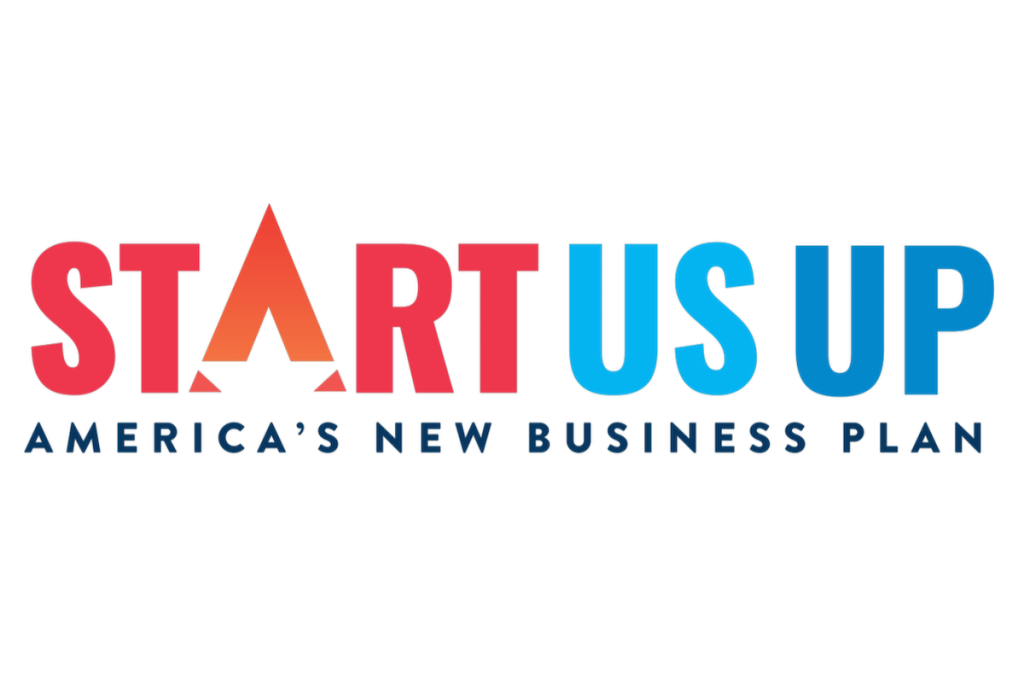This week, members of the Start Us Up coalition convened virtually to learn more about the ‘Knowledge’ pillar of America’s New Business Plan, which focuses on building practical knowledge, skills, and networks to ensure entrepreneurs are prepared to navigate the challenges of opening and operating a business.
Previously, we touched on how modernizing workforce development to include entrepreneurship-centric skills represents an important step. But communities can take action to build these skills at an even earlier age by integrating skills essential to entrepreneurship into education. As research has shown, entrepreneurial education and training in kindergarten through college is linked to positive business outcomes.
America’s New Business Plan offers several recommendations aimed at “preparing the youth of today to be the entrepreneurs of tomorrow,” including providing students with real world learning experiences and industry-recognized credentials, in order to make primary education more valuable and applicable to the modern economy.
In the Kansas City region, this recommendation exists as a full-fledged initiative. Real World Learning is a collaborative of more than 30 districts and charters in both Kansas and Missouri, bringing together schools, businesses, and civic institutions to ensure students in the region graduate with a market value asset. National education leader Tom Vander Ark has called it “the largest effort to make high school more valuable.”
On this week’s coalition call, KC Rising director Sheri Gonzales spoke of the program’s role in regional economic development, emphasizing the extent to which the skills learned align with the importance of entrepreneurship to today’s economy.
“One of the things that makes Real World Learning unique is that it’s not just looking at creating cogs in a wheel,” she said. “It’s looking at helping to create people who are able to innovate, have capacity to create, and an ownership mentality. It has in there an entrepreneurship experience that is different than just work-based, and it also has equity at the center, which means that we believe that with intentionality, we can unlock potential wherever it lives.”
Take, for example, the way in which Kansas City students helped local ecosystems navigate the challenges of the pandemic. An April article from Kearney School District analyzes a student-led initiative aimed at better understanding how cities can become more attractive options for remote workers.
With guidance from the Kauffman Foundation, the students worked to “build and manage a complex, long-term development study,” including “surveying staff at some the region’s biggest corporate employers, including Hallmark, Garmin and Blue Cross Blue Shield of Kansas City.”
As local economies continue to navigate the immediate effects, as well as the long-term consequences, of COVID-19, collaboration between institutions — education, civic, and business — will continue to prove vital.
Not only can communities benefit from the insights students have to offer, but in the long-term, the next generation of innovators will enter the workforce with an understanding of 21st century challenges, and possess the skills and mindsets necessary to address them.

